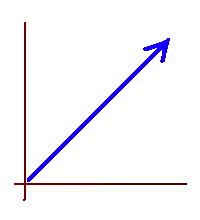Useful tips for students looking for tutoring
Find a math tutor who is right for you.
Plan ahead, work out a budget, and find a tutor within your price range.
Make sure you feel comfortable communicating with your tutor by e-mail, phone, and in person.
Make sure you feel comfortable about the tutoring schedule, and the meeting place you use for the tutoring sessions, whether it is your own house, a coffee shop, a public library, or the tutor’s office.
Schedule at least one tutoring session per week through your exam’s date. Two weekly sessions 3 or 4 days apart from each other is the ideal schedule. Three weekly sessions may be necessary in some cases. One-hour-long sessions work best in most cases, although some students prefer 90-minute sessions. Your tutor should be flexible and accommodating about this. He or she should work with you to find a good working schedule. Once the schedule is set, strictly adhere to it as best you can.
Make sure the tutor clearly explains the subject matter, and answers your questions in a way that is easy for you to understand.
Bring all your study materials to the tutoring sessions: prep book(s), notebook, pencils/pens, scratch paper, and the same calculator you will use in the test (if one is allowed).
Set enough time apart to work out practice problems on your own before each tutoring session.
While you are working out practice problems by yourself, identify all the problems that give you trouble. Mark them with sticky notes, color flags, highlighter, or in any other way that reminds you what kind of trouble you are having with each particular problem.
Mark the problems you did not even have a clue how to approach them; those where you got the wrong answer; those that took you too long; those that you got right but you are not really sure why; those where you read the explanation provided in the book but you did not understand such explanation. Mark all such problems.
The purpose of the preparation work described above –prior to the actual tutoring– is for you to enable the tutor to maximize results in your benefit. You want your questions answered. You don’t want to pay money just so someone sits next to you watching you solving a bunch of problems that you can do on your own without any trouble.
During each tutoring session make sure to ask all questions that come to your mind. Do not allow you to keep the slightest bit of confusion to yourself, share it with the tutor. Help your tutor understand what is confusing you. Tell him or her how you feel, and what thoughts and/or emotions go through your mind when you read each problem. It is very important your tutor understands your thought processes (whatever they may be) so he or she can help you by pointing you in the right direction. When I say “the right direction” I mean the right direction for you with that particular problem. There are many problem-solving techniques and strategies available, and each student is uniquely suited to use some better than others. That is why telling your tutor all your reactions to a problem is so important.
Make notes about everything your tutor says that you find useful, new, insightful, or otherwise helpful in any way. Any problem-solving methods, techniques, strategies, rules, formulas, tricks or shortcuts your tutor shows to you, and you feel they will help you solve the problems faster and/or with greater accuracy or reliability, make a note of them to review them later, and apply them to similar problems.
A Place Away From Tech
-
The Fine Arts Building
Last week, I partook of the second Fridays open house in the The Fine Arts
Building, ten floors of offices all related to the ar...
11 hours ago





1 comment:
yah its a good suggestion and plays a major role in promoting bright future for children
Regards,
lavanya.
-------------------------------------
Mental math
Post a Comment